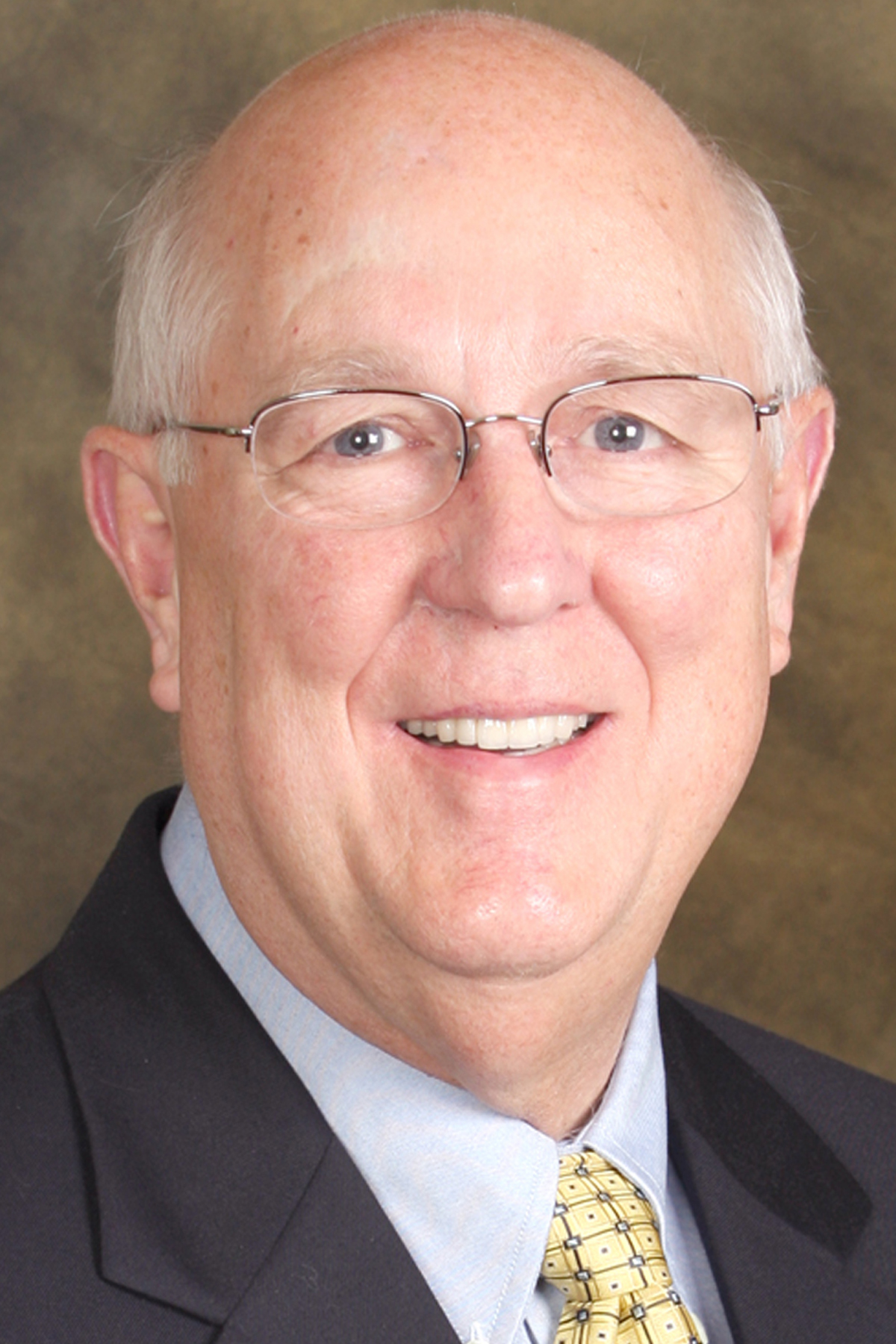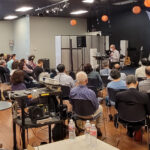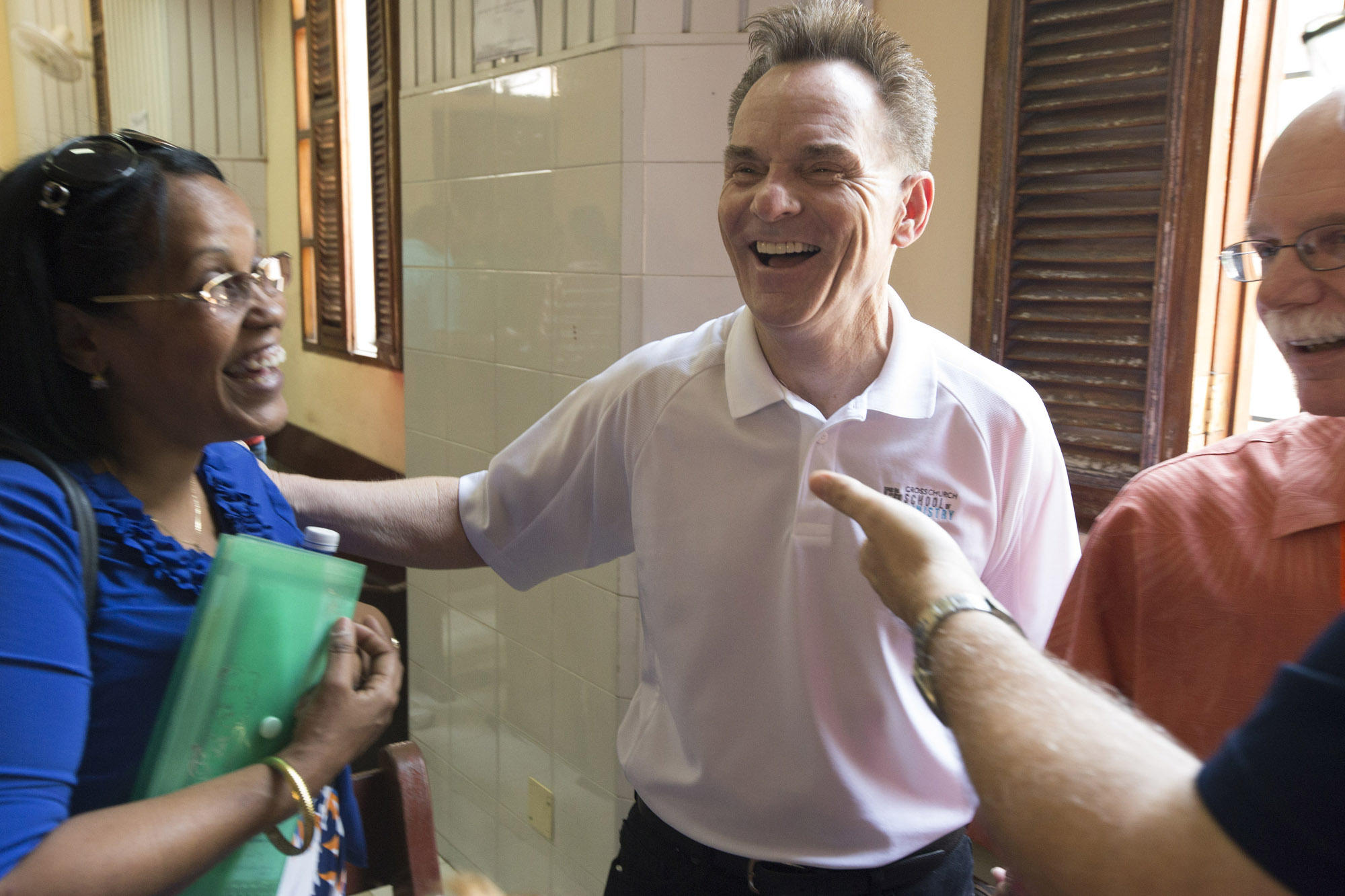
BIRMINGHAM, Ala. (BP) — Baptists have two financial focuses during October. Some people wonder if the two emphases compete with one another.
October is Cooperative Program (CP) month. It is a time when churches are encouraged to celebrate the partnership between local churches, their state convention and the Southern Baptist Convention (SBC). The genius of churches working together to do missions, education and benevolent work from the local community to distant parts of the world is a gift from God.
Oct. 11 was Global Hunger Sunday on the denominational calendar. The special emphasis also has been known as World Hunger Sunday. Many Baptist churches called attention to the curse of hunger in their states, the nation and world and encouraged members to make a special offering to help relieve those hunger needs.
CP is important and so is the Global Hunger Relief offering. Each fulfills a special need but they do not duplicate what the other does.
Years ago I was in Thailand at the request of the International Mission Board (IMB). Missionaries worked with refugees from Cambodia and Laos. Along with assisting families at refugee centers, they also practiced mercy at a detention center in Bangkok where people were locked in cages no larger than my office desk. In all cases the missionaries shared the Gospel, helped feed hungry people and built relationships for additional sharing.
More recently I was in refugee camps in Jordan where Baptist workers regularly provide assistance to displaced families. The workers did not do the work for the expressions of gratitude coming from recipients although they were abundant. Workers invested themselves in food distribution and other ministries to demonstrate the love of God for people who lived in a culture that knew little of Jesus Christ.
In a New England state, I served food in a Baptist church that provided lunch to homeless and hungry people once a week. Again the pastor said feeding the hungry validated their ministry in Jesus’ name and opened doors of witness to individuals and the community.
In each case the ministries in which I briefly participated resulted from both the CP and Global Hunger Relief (formerly the World Hunger Fund). CP made possible the service of missionaries in Thailand, Baptist workers in Jordan and a pastor in New England.
Foundation for Baptist work
CP provides the foundation of Baptist work. It pays salaries and makes sure there are missionaries, Baptist workers and church planters to address ministry needs like hunger relief.
Resources for the particular ministry of hunger relief comes mostly from the hunger relief offering.
Without CP there would have been no one in Thailand, Jordan or New England to do the ministries. Without the Global Hunger Relief offering there would have been few dollars to assist the hungry. That makes both funding channels necessary. They do not compete with one another. They complement one another.
Here in Alabama hunger is a special challenge. According to the latest study released by the Department of Agriculture, slightly more than 1 in 4 children (26.2 percent) live in a home with low or very low food security. That is a polite way of saying they live with hunger.
One in 6 (16.8 percent) of all state residents live with hunger and about 1 in 8 (12 percent) of seniors face hunger. All averages are above the national norms.
Thankfully Alabama Baptists care. According to statistics provided by the Alabama Baptist State Board of Missions, Alabama Baptist hunger relief funds helped feed 185,365 people in our state in 2014. The reports also indicate 2,338 professions of faith as a direct response to hunger ministries.
As with all designated gifts, every dollar given goes directly to that ministry. A portion of the funds given through Alabama Baptist channels is earmarked for hunger relief projects in the state. SBC funds are divided 80 percent to international efforts and 20 percent to domestic programs.
Readers may know that fighting hunger is one of my Gospel-driven passions. In addition to working in hunger relief, I continue to advocate for policies that prevent hunger. If Baptists can work for policies that prevent the sale of fetal body parts (and we should), then we can push for policies to curb or even eliminate hunger.
That is why I will continue to support hunger relief efforts financially. I urge you to consider giving to fight hunger as well.
But these gifts will not take the place of my CP support. As the SBC declared when adopting the Great Commission Resurgence Task Force report, “The Cooperative Program remains the primary channel of missions giving.” CP undergirds all missions efforts, whether in Alabama, an underserved area of this nation or some foreign land.
CP is more than missions. It is education. It is benevolent work. It is all Baptists do together. Experience has taught the value of supporting the total program of Southern Baptists through CP giving rather than having the various ministries compete with one another for all their funding.
Strength in numbers
When CP giving is strong, the foundation of Baptist work together is strong. When CP giving is weak, important parts of the foundation begin to crumble.
This month I will give my tithe to my local church and a portion of that will be forwarded to causes beyond the church through CP. And I will write another check for Global Hunger Relief because I care about that cause and want it to have more support than possible through CP alone.
That is the difference between cooperative giving and designated giving. Cooperative giving such as CP promotes all Baptists do together. Designated giving provides additional support for areas reflecting the passion of the giver. Both are important but they accomplish different purposes.
That is why designated giving such as through the Global Hunger Relief offering and CP giving do not compete. Instead they complement one another.


















